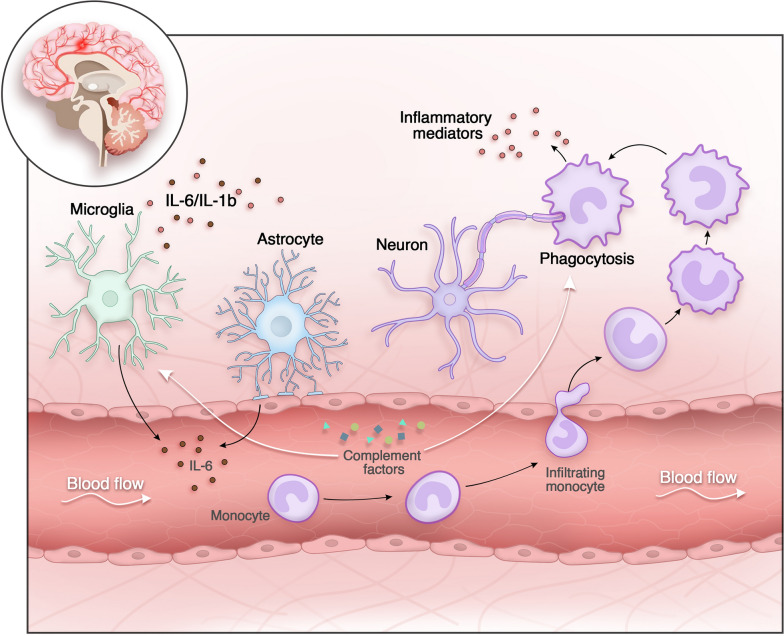Fig. 2.
The role of the innate immune system’s inflammatory response in ischaemia–reperfusion injury. Upon reperfusion of the cerebrovascular bed following tissue ischaemia, the innate immune system incites an inflammatory response characterized by astroglial activation by brain hypoxia/ischaemia. Principally, resident macrophages, termed microglia, are activated and secrete pro-inflammatory cytokines (interleukin 6, interleukin 1-beta) and chemokines which attract circulating mononuclear cells from the bloodstream. The endothelium upregulates leukocyte adhesion molecules which enable tissue infiltration of monocytes from the bloodstream and in turn, the secretion of pro-inflammatory cytokines is exacerbated with resulting injury to the cells of the neurovascular unit. Complement cascade activation also ensues which further propagates the inflammatory injury and is pro-thrombotic in the cerebral microvasculature

